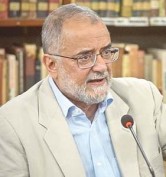Trump is actually a new face, not a new factor on US outlook on Pakistan
 From Dawn by Peerzada Salman. Two eminent speakers on Thursday shed light on the current state of Pak-US relations at The Pakistan Institute of International Affairs (PIIA). The first speaker was Najmuddin Sheikh, former foreign secretary of Pakistan. He started his talk by mentioning a few myths that prevailed. He said there was the myth that Pakistan and the United States had mutual interests. It had never been the case. The ties were of a transactional nature from the beginning and the commonalities were contrived. We did not have a common aversion to the Soviet Union. During the Afghan jihad we were genuinely concerned about the Soviet Union consolidating its position in Afghanistan, the old idea that it was looking for warm waters, but the Americans had a different idea; they said they would do to the Soviet Union what it did to them in Vietnam. The only commonality was the war against terror.
From Dawn by Peerzada Salman. Two eminent speakers on Thursday shed light on the current state of Pak-US relations at The Pakistan Institute of International Affairs (PIIA). The first speaker was Najmuddin Sheikh, former foreign secretary of Pakistan. He started his talk by mentioning a few myths that prevailed. He said there was the myth that Pakistan and the United States had mutual interests. It had never been the case. The ties were of a transactional nature from the beginning and the commonalities were contrived. We did not have a common aversion to the Soviet Union. During the Afghan jihad we were genuinely concerned about the Soviet Union consolidating its position in Afghanistan, the old idea that it was looking for warm waters, but the Americans had a different idea; they said they would do to the Soviet Union what it did to them in Vietnam. The only commonality was the war against terror.
Mr Sheikh then pointed out the errors that the US committed. He said: “Why did the US allow Osama bin Laden get shifted from Sudan to Afghanistan?” He [Osama] travelled by a C130 from Sudan to Afghanistan. In Sudan he was a relatively unknown figure whereas in Afghanistan he was a hero of the Afghan jihad. Two years later an American general sitting in the office of our chief of army staff said they were firing missiles across our air space but they were not meant for us; they were trying to hit a camp in Afghanistan where they believed Osama bin Laden was. Mr Sheikh said the current situation was that President Trump’s New Year tweet generated a lot of speculation and he [Sheikh] thought there was a more rational explanation for it. Continue reading

 Since Washington has started an
Since Washington has started an 













